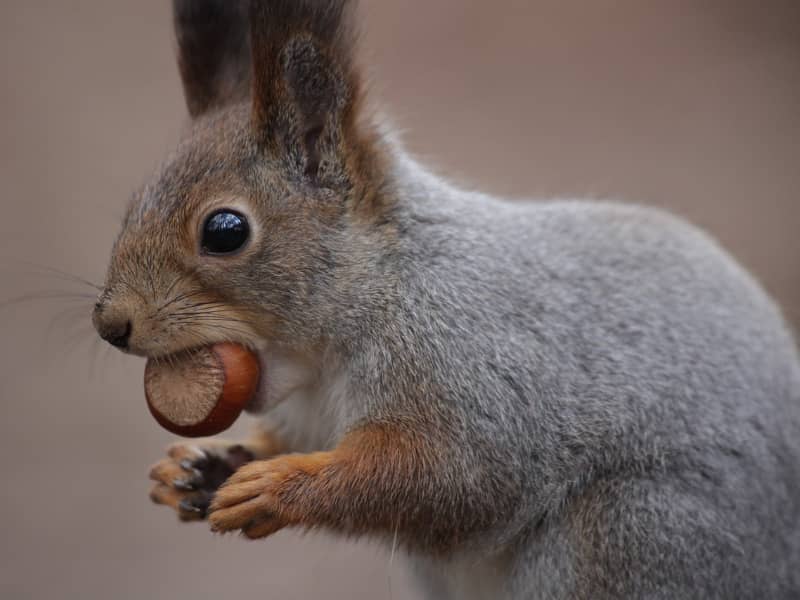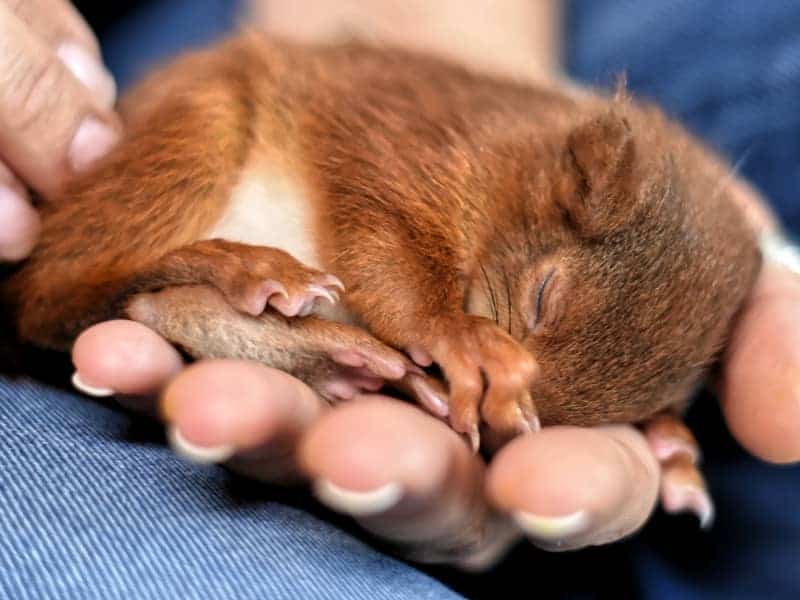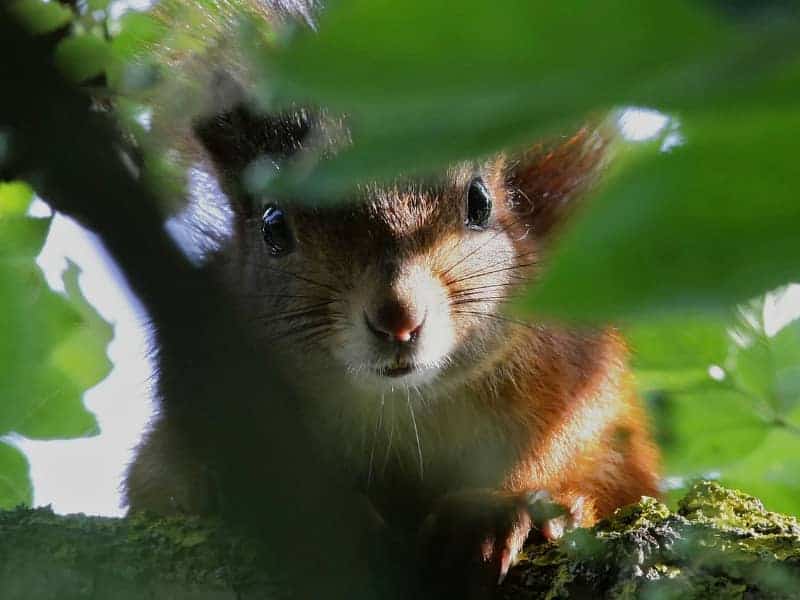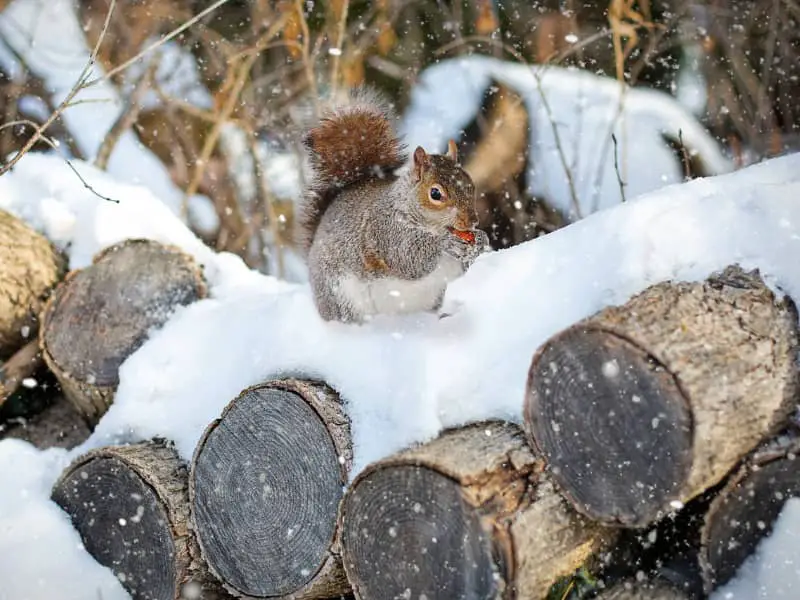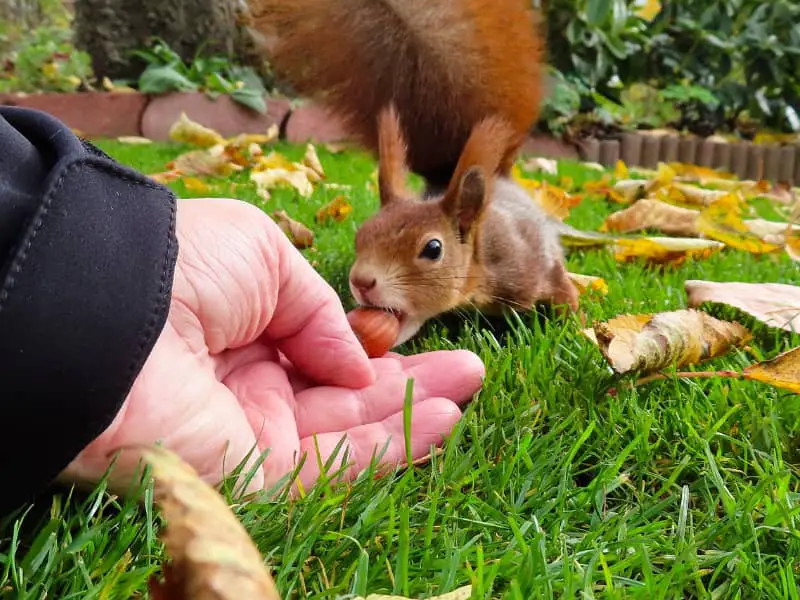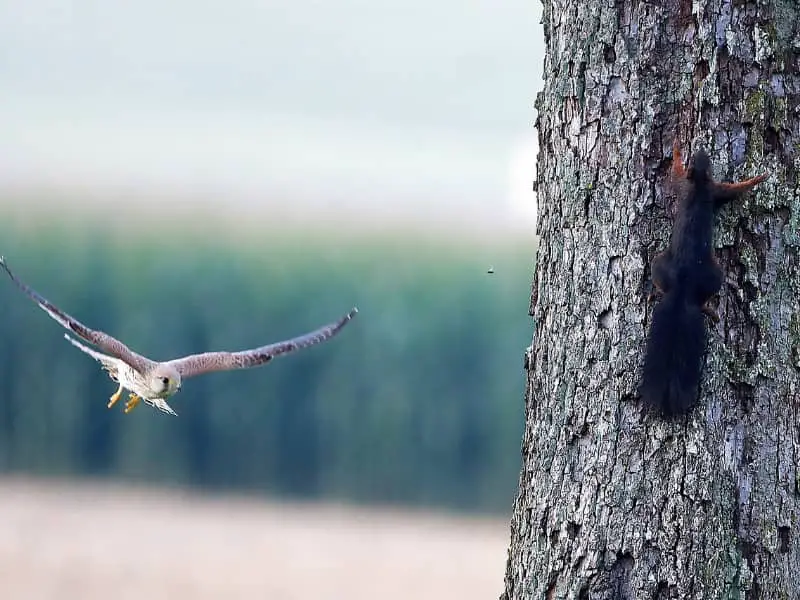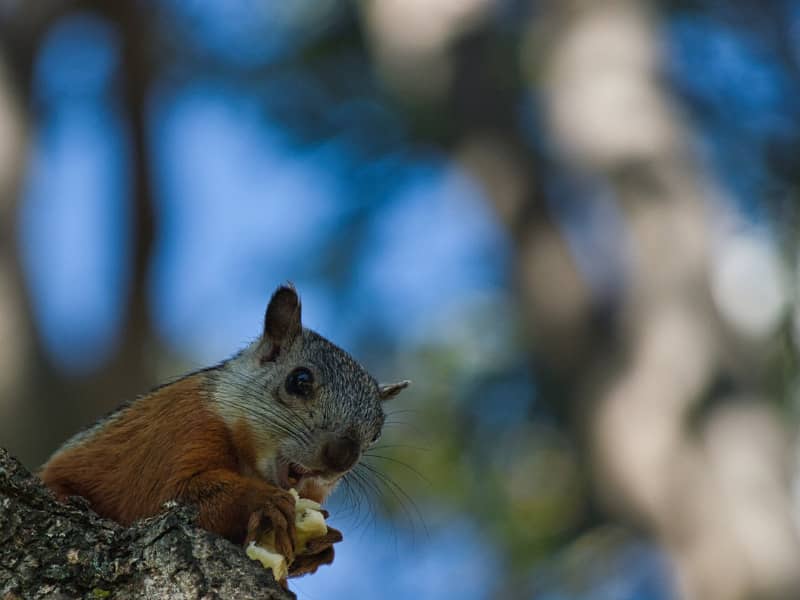
How many teeth does a squirrel have?
To learn about the number of squirrel teeth, you need to know a little about the animal's dentition. The typical dentition of the European squirrel has a few distinctive features.
This is what a typical set of teeth looks like
In each half of the jaw, the squirrel has one nail tooth, two premolars at the top and one premolar at the bottom as well as 3 molars. There are no canines. The number of teeth in the squirrel is therefore 22. Pictorially it looks like this:
3 - 2 - 0 - 1 - 1 - 0 - 2 - 3 top number 12
3 -1 - 0 - 1 - 1 - 0 - 1 - 3 down Number 10
The size of the premolars and molars increases from front to back.
Why does the squirrel have so many teeth?
Thanks to the large number of teeth, the squirrel can easily open nuts. The teeth are used as a lever. The special feature of the squirrel's teeth is that the lower jaw is divided.
Are squirrels' teeth sharp?
The squirrel is a rodent. For this reason, it has two sharp incisors at the top and two at the bottom of its jaw. Just like our pets, these grow back throughout the squirrel's life. The enamel of the gnawing teeth is very hard, while the underlying dentin is softer. The enamel is significantly thicker on the front than on the back. The front side therefore wears down less. This limited wear causes the shearing edges to resharpen themselves again and again.
How sharp are the squirrel's teeth?
The teeth of rodents, to which the squirrel belongs, are special. The two chisel-like incisors, also known as gnawing teeth, are close together. There is a toothless gap directly next to the gnawing teeth. The canines and premolars are missing here. Premolars are the two molars that are in front of the third molar. In specialist circles, these are also referred to as the front small molars.
When do squirrels get their teeth?
The squirrel's teeth have already fully developed by the tenth to twelfth week of life. The animals are no longer babies. At around 3 months, squirrels become self-sufficient. This means that they must be able to crack all kinds of nuts.
Why are squirrels always nibbling?
As the squirrel's teeth are constantly growing back, the animals are constantly nibbling on something hard. This sharpens their teeth. Nuts or pine cones are ideal for this. If the squirrel did not gnaw on anything, the teeth would grow too long and would then be more of a hindrance than a benefit.
If the squirrel's teeth are not worn down by gnawing, they continue to grow and can pierce part of the skull. The lower gnawing teeth grow forwards and upwards out of the mouth and become completely unusable.
How do squirrels crack nuts?
They usually gnaw on a nut until it has a hole in it. They then use their lower incisors as a lever to open the nut.
Do squirrels brush their teeth?
Even if this question sounds paradoxical to you, the answer is YES. The little animals peel bast from the branches. They pull this through between their gnawing teeth like dental floss.
Author

-
Garden animal - A life with nature
Welcome to my animal blog! My name is Dirk and I am happy to take you on my journey through the fascinating world of animals and gardening.
Born 54 years ago, I have had an insatiable curiosity for the animal world around me since childhood. Although I have moved professionally in other industries, my true passion has always been animals and nature. It is remarkable how a small garden has become such an important part of my life.
Many of my fondest memories are associated with the animals that share our home. Whether it's the curious squirrels that scurry across the trees in the morning, the colorful variety of birds that visit our feeders, or the busy bees and butterflies that pollinate our flowers, every moment with them is invaluable to me.
This blog is my contribution to share my experiences, discoveries and insights with like-minded people. Here I will share stories of unforgettable encounters with animals, give tips on gardening and creating wildlife-friendly habitats, and take you on my journeys through nature.
Thank you so much for being here!
Cordial,
Dirk aka garden animal
Last posts
- 27. February 2024PetsVeganes Hundefutter – Grün und Gesund?
- 18. January 2024ChickensOregano für Hühner
- November 27, 2023HamsterDiurnal hamsters
- November 24, 2023HamsterHamster hammock

